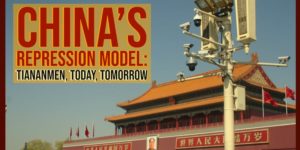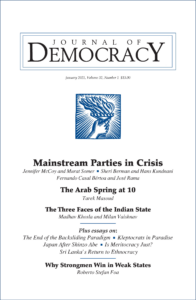
National Endowment for Democracy
If the U.S. and China are strategic competitors, then judging by the last 12 months, China is winning, the Wall Street Journal’s Greg Ip writes. Its centralized, authoritarian model has been ruthlessly efficient at mobilizing individuals, companies and government to combat Covid-19, face down foreign adversaries and deepen its technological know-how in areas such as semiconductors. U.S. efforts over the past year, by contrast, have been repeatedly undermined by the collision of interests within its pluralistic, decentralized system and among its fellow democracies.
However…
The CCP faces the same problem as Imperial and Republican China, say economic historians Loren Brandt and Thomas Rawski. “How can China embed a creative, freewheeling culture of economic and technical innovation within an authoritarian system whose leaders feel threatened by unorthodox thinking?” they write in a chapter for the forthcoming “Cambridge Economic History of China.”
The formula of subsidies and protection China has used to nurture national champions faces diminishing returns as innovation becomes more complex; results in commercial aircraft and semiconductors have to date been disappointing. Mr. Brandt and Mr. Rawski warn of a “Soviet-style outcome in which the occasional Sputnik illuminates galaxies of mediocrity.” RTWT
 Political strength vs. economic advance
Political strength vs. economic advance
Today, as in the past, authoritarian governance dominated by self-perpetuating elites occupies the core of China’s political economy, Brandt and Mr. Rawski observe, citing Andrew Nathan’s “China’s Changing of the Guard: Authoritarian Resilience,” from the NED’s Journal of Democracy 14.1 (2003):
The power and status of leaders at all levels rest on personal networks of patronage and loyalty. Rewarding supporters with money, positions and commercial opportunities forms a critical bulwark of elite adherence, and thus regime survival. The continuing need to distribute resources inclines leaders toward institutions and policy structures that place large flows of rents at their disposal. These arrangements generate costs, distortions and rigidities that constrict growth, widen inequality, and threaten the economy’s capacity to adapt to change.
“Chinese governance systems thus conceal internal tensions between political strength and economic advance,” they conclude.
In 2020, China rose to the challenge of Covid-19 and economic crisis while the U.S. flailed. Can the prestige of American democracy recover? https://t.co/bfrhDZx0Hv via @WSJ
— Democracy Digest (@demdigest) January 22, 2021







